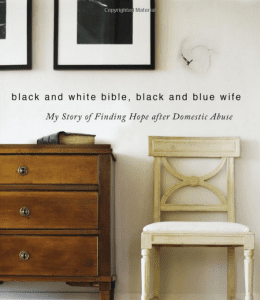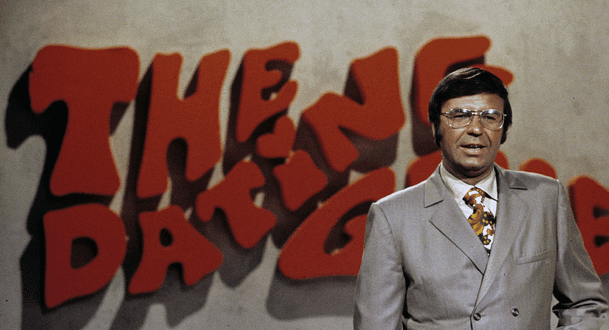 Scot brought an article to my attention a few weeks ago – with little to do with science, yet much worth thinking about. This article, All the Single Ladies, by Kate Bolik was published in Nov. 2011 issue of The Atlantic. In her essay Bolik explores many aspects of marriage and relationship in 21st century America. She begins on a personal level:
Scot brought an article to my attention a few weeks ago – with little to do with science, yet much worth thinking about. This article, All the Single Ladies, by Kate Bolik was published in Nov. 2011 issue of The Atlantic. In her essay Bolik explores many aspects of marriage and relationship in 21st century America. She begins on a personal level:
In 2001, when I was 28, I broke up with my boyfriend. Allan and I had been together for three years, and there was no good reason to end things. He was (and remains) an exceptional person, intelligent, good-looking, loyal, kind. My friends, many of whom were married or in marriage-track relationships, were bewildered. I was bewildered. To account for my behavior, all I had were two intangible yet undeniable convictions: something was missing; I wasn’t ready to settle down.
The opening of this article caught me. I was about the same age, concentrating on graduate school and a potential career when faced with the same kind of question. We’ve been married 25 years now – and I have no doubt that it was one of the best decisions I’ve ever made. But what would life have held under other circumstances?
The article by Bolik points to a real shift in the view of marriage and family, at least in some circles. For most of history marriage was primarily a political and economic contract – it established family ties and provided a team to face the challenges of life, the efforts of two adults were a requisite in most circumstances. This necessity of marriage was especially true for women, but was also true for men. But marriage is no longer necessary for prosperity or even for parenthood. Marriage is something expected, to be entered into if the right circumstance appears, but not lightly or out of necessity. Not only is marriage unnecessary – many are increasingly feeling that it isn’t even desirable. Kate Bolik quotes a statistic from the Pew Research Center: “a full 44 percent of Millennials and 43 percent of Gen Xers think that marriage is becoming obsolete.” If marriage is not obsolete – the value and purpose of marriage is at least viewed as overblown and distorted.
Do you see a growing view of marriage as obsolete?
And a related question …
Do we over idealize and stress the married couple?
Bolik’s opening story of her break-up with Allan weaves through her essay as she rambles through many different lifestyles and aspects of modern life and modern relationships, exploring different factors at play in the comparison of reality with the idealized marriage.
Ten years later, I occasionally ask myself the same question. Today I am 39, with too many ex-boyfriends to count and, I am told, two grim-seeming options to face down: either stay single or settle for a “good enough” mate. At this point, certainly, falling in love and getting married may be less a matter of choice than a stroke of wild great luck. A decade ago, luck didn’t even cross my mind. I’d been in love before, and I’d be in love again.
The idealization of marriage as a search for the perfect partner rather than a “good enough” mate is one of the issues complicating marriage – there is an expectation of an effortless perfect soul mate rather than a relationship that grows and flourishes with effort and attention. But this is compounded by the stress and emphasis that is placed on the married couple as a self-sufficient and exclusive pair, not just in sexual intimacy but in all aspects of relationship. One of the ideas Bolik explores is the context of our modern idea of marriage as an exclusive pairing. This is, she suggests, a short-lived and highly context and culture driven view. It wasn’t this way for most of human history. The modern marriage is being called to bear a load that stresses many unions.
Our cultural fixation on the couple is actually a relatively recent development. …
It wasn’t until we moved to farms, and became an agrarian economy centered on property, that the married couple became the central unit of production. … It was in our personal and collective best interest that the marriage remain intact if we wanted to keep the farm afloat.
That said, being too emotionally attached to one’s spouse was discouraged; neighbors, family, and friends were valued just as highly in terms of practical and emotional support. Even servants and apprentices shared the family table, and sometimes slept in the same room with the couple who headed the household, Coontz notes. Until the mid-19th century, the word love was used to describe neighborly and familial feelings more often than to describe those felt toward a mate, and same-sex friendships were conducted with what we moderns would consider a romantic intensity. …
But as the 19th century progressed, and especially with the sexualization of marriage in the early 20th century, these older social ties were drastically devalued in order to strengthen the bond between the husband and wife—with contradictory results. As Coontz told me, “When a couple’s relationship is strong, a marriage can be more fulfilling than ever. But by overloading marriage with more demands than any one individual can possibly meet, we unduly strain it, and have fewer emotional systems to fall back on if the marriage falters.”
Some even believe that the pair bond, far from strengthening communities (which is both the prevailing view of social science and a central tenet of social conservatism), weakens them, the idea being that a married couple becomes too consumed with its own tiny nation of two to pay much heed to anyone else. In 2006, the sociologists Naomi Gerstel and Natalia Sarkisian published a paper concluding that unlike singles, married couples spend less time keeping in touch with and visiting their friends and extended family, and are less likely to provide them with emotional and practical support. They call these “greedy marriages.” I can see how couples today might be driven to form such isolated nations—it’s not easy in this age of dual-career families and hyper-parenting to keep the wheels turning, never mind having to maintain outside relationships as well. And yet we continue to rank this arrangement above all else!
The emphasis on maintaining connections outside of the exclusive pair is seen in many other cultures as well. I read a book many years ago directed to an Asian culture that, in giving advice to the groom, stressed the importance of maintaining these outside relationships and recommended leaving on a trip without his wife within a month or so of marriage to avoid becoming too attached. This struck me then as weird – and unwise – but the emphasis on the couple as the source of all happiness and connection may bring its own problems. This brings, to my mind at least, a number of questions well worth considering.
Are we asking too much of marriage and the nuclear family?
Do you think that this emphasis on the pair bond weakens community?
Does it impact the church for good or ill?
If you wish to contact me directly you may do so at rjs4mail[at]att.net.
If interested you can subscribe to a full text feed of my posts at Musings on Science and Theology.











